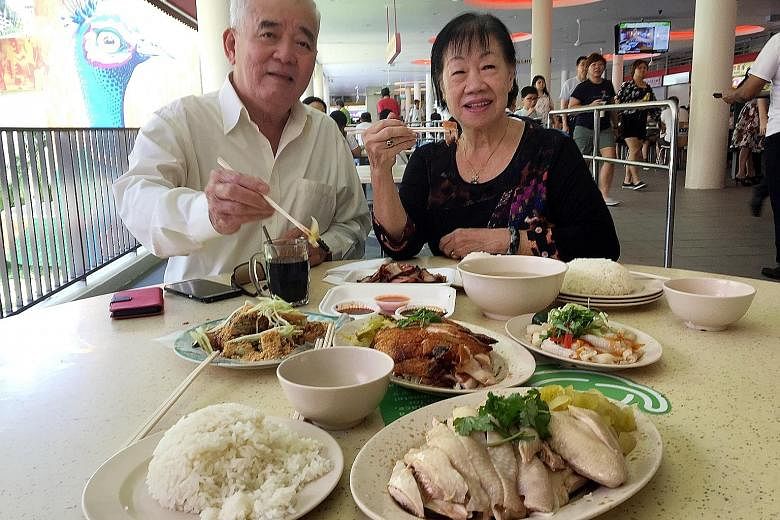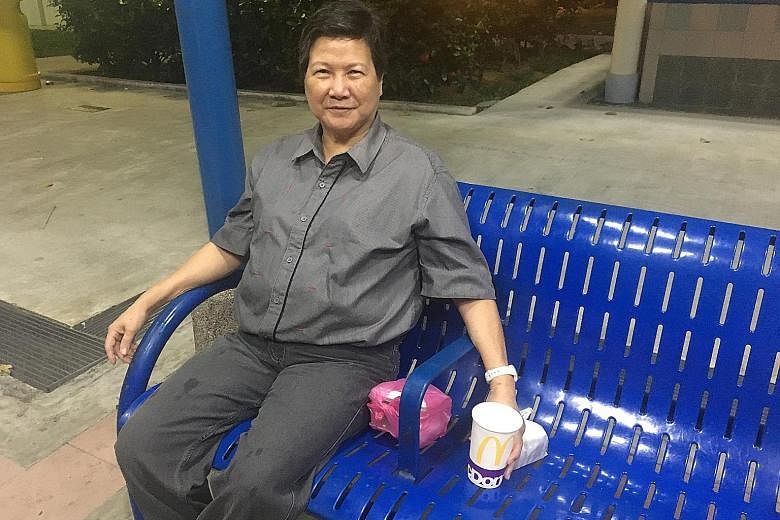For many years, a typical meal for Mr Mah Yap Hong would look something like this: a bowl of laksa or a plate of roast pork rice. These were cheap, fuss-free options for the former roadworks labourer.
It was only after he was diagnosed as a diabetic that Mr Mah, now 76, started to make nutritious meals a greater priority, adding more vegetables and fruit to his meals.
Meanwhile, for Madam Lim Cheo Tee, 64, a fast-food outlet worker, a typical meal would be economy rice and fried noodles. "I know hawker food isn't very healthy but it's convenient," she said.
The pair's long-time diets are typical of those of many older Singaporeans. Around one-third of those aged 55 and above who live at home are undernourished, said experts, citing studies carried out over the years.
And now, a new long-term study aims to find out what exactly causes these elderly Singaporeans to be undernourished.
A new centre set up by Changi General Hospital (CGH) and consumer healthcare firm Abbott will track 1,200 people aged 65 and above from now to May 2019 and see what happens when their diets are modified. The new Nutritional Health for the Elderly Reference Centre is supported by the Economic Development Board.
With the results, the researchers hope to be able to guide policymakers to create dietary solutions that are specific to Asians. Most data today is based on Western research.
Dr Low Yen Ling, director of research and development at Abbott Nutrition Asia-Pacific Centre, pointed out, for example, that Asians tend to eat more carbohydrates such as porridge as they age, while Westerners have more protein-rich diets.
In Singapore, undernourishment could happen when people consistently eat only one type of food such as carbohydrates, without adequate proteins and vegetables. All three need to be present for a nutritious meal.
In particular, the elderly tend to eat insufficient meat, observed CGH geriatrician Samuel Chew. "They grew up in times of hardship and so are used to eating much less. There is also the belief that as you grow older, you don't need to eat as much meat."
Ms Magdalin Cheong, CGH's head of dietetic and food services, added: "Older people tend to have poorer appetites, have dementia, are depressed and find it difficult to chew tougher foods so they simply stop eating them without replacing them. They are undernourished, partly also because they're eating very small quantities."
This results in muscle and weight loss, which in turn increases the odds of infections and longer hospital stays. One sign to watch out for is when someone inexplicably loses at least 5 per cent of his weight in one month, or 10 per cent in six months, said Adjunct Assistant Professor Chew.
MP Tin Pei Ling, whose MacPherson ward has many elderly residents, said that although she does not have hard data, she believes that undernourishment among the elderly, especially those "who are lower income", is an issue.
She said: "Their choices are limited, particularly the single elderly who don't have someone to keep an eye on them to let them know what's healthier."
While housewife Jayaletchumi Palanisamy, 67, eats healthily she said it may be difficult for those"who can't afford it". "Healthy food comes at a price," she added.
•Additional reporting by Yuen Sin



